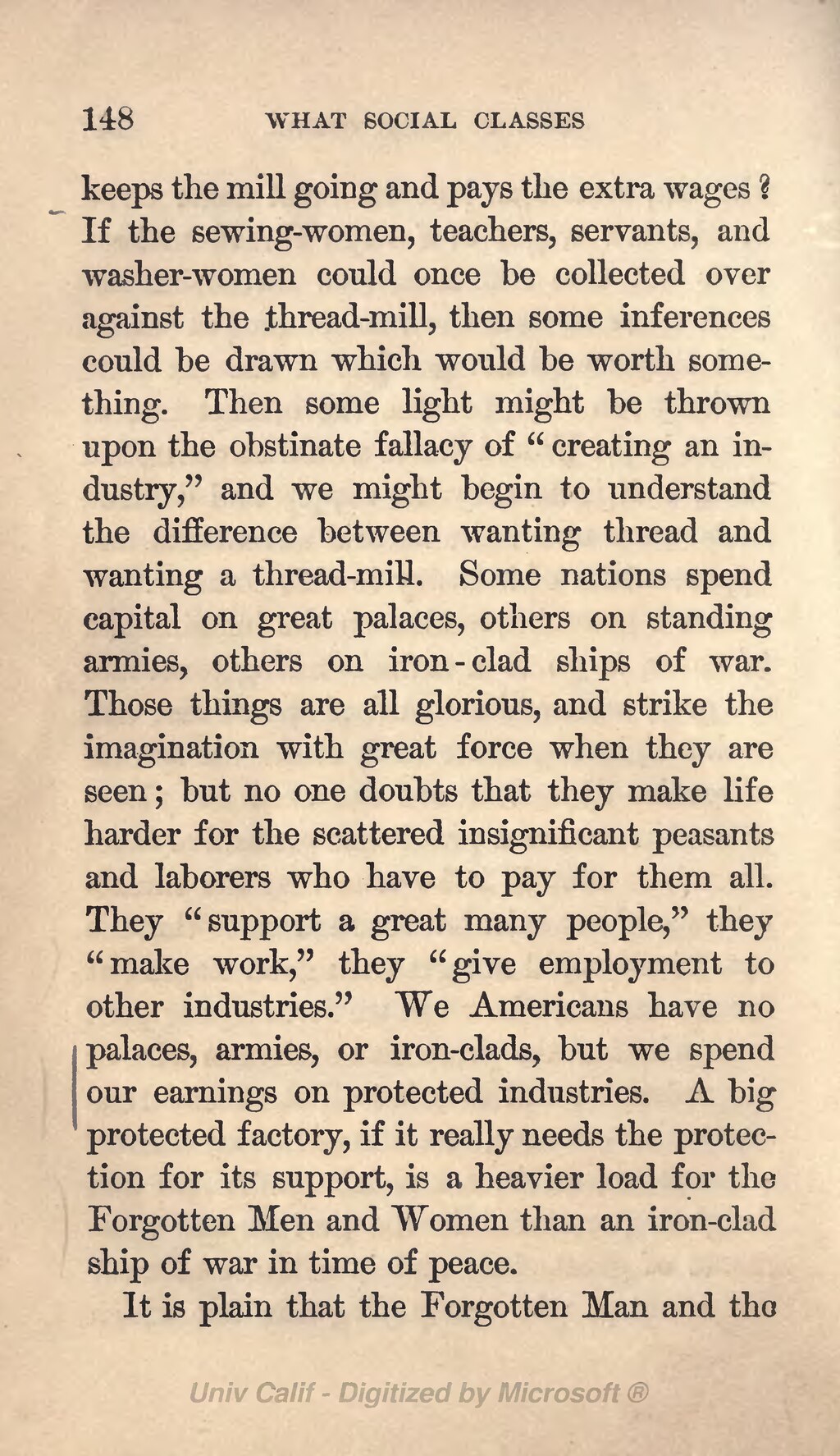keeps the mill going and pays the extra wages? If the sewing-women, teachers, servants, and washer-women could once be collected over against the thread-mill, then some inferences could be drawn which would be worth something. Then some light might be thrown upon the obstinate fallacy of "creating an industry," and we might begin to understand the difference between wanting thread and wanting a thread-mill. Some nations spend capital on great palaces, others on standing armies, others on iron-clad ships of war. Those things are all glorious, and strike the imagination with great force when they are seen; but no one doubts that they make life harder for the scattered insignificant peasants and laborers who have to pay for them all. They "support a great many people," they "make work," they "give employment to other industries." We Americans have no palaces, armies, or iron-clads, but we spend our earnings on protected industries. A big protected factory, if it really needs the protection for its support, is a heavier load for the Forgotten Men and Women than an iron-clad ship of war in time of peace.
It is plain that the Forgotten Man and the
